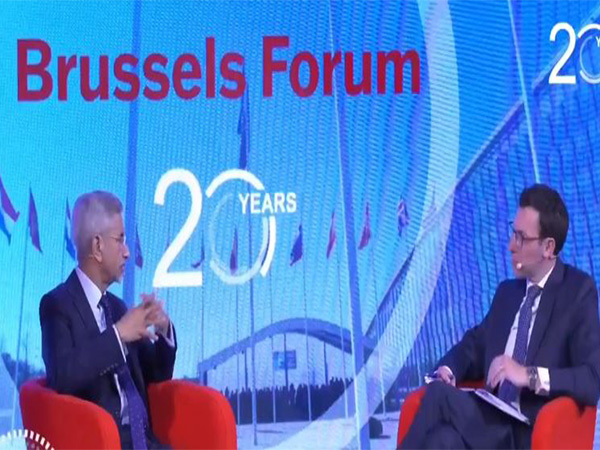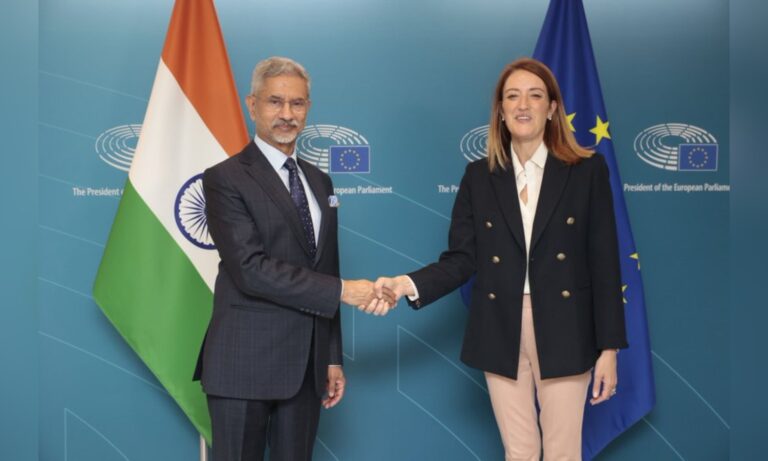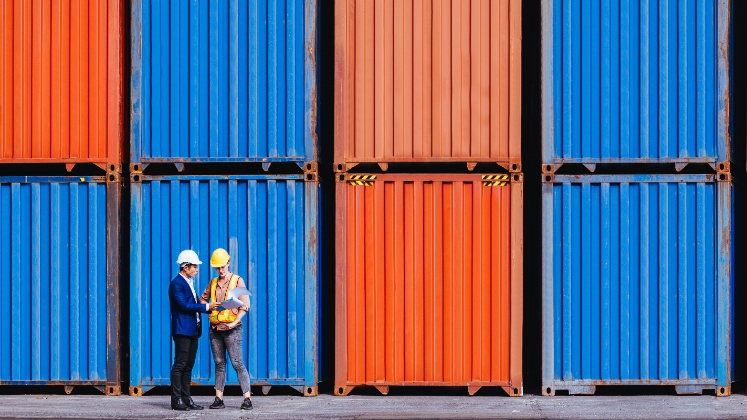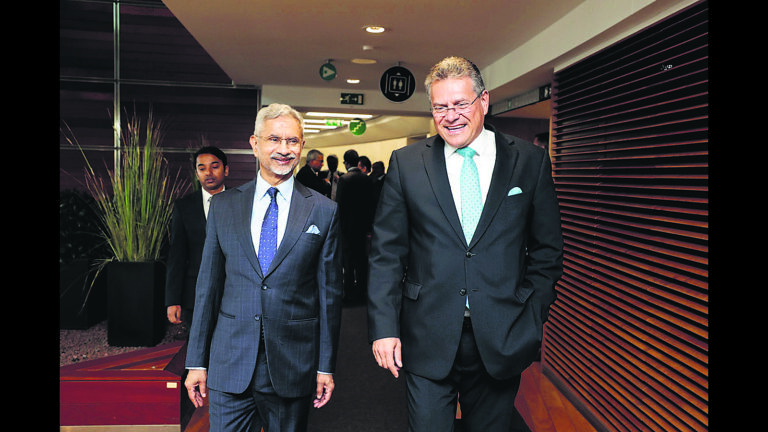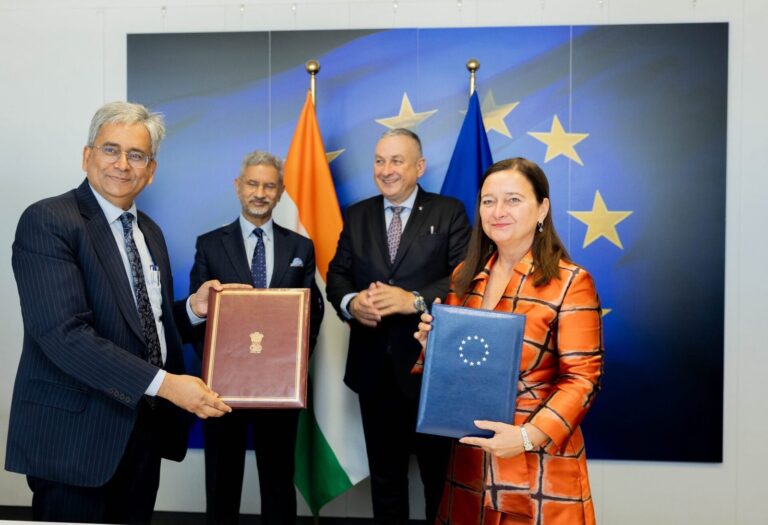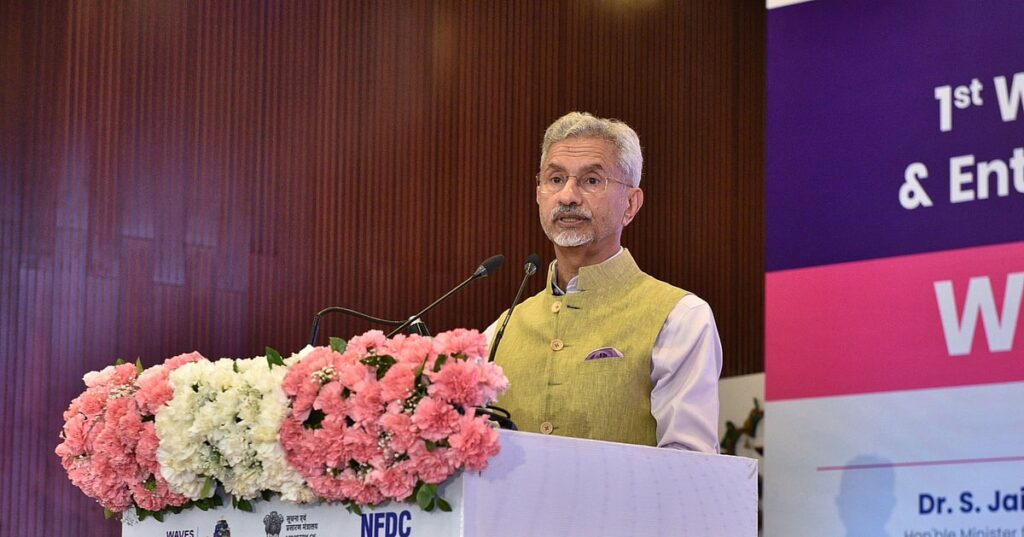
India grants great priority to its relations with the European Union, the centerpiece of which is negotiations of the free trade agreement which makes very good progress, said the Minister of External Affairs, the Minister of External Affairs on Wednesday. During a conversation with the head of the Brussels Bureau of the Financial Times, Henry Foy, at the German Fund for the Marshall Fund, the Minister of External Affairs expressed his confidence that the end-of-year calendar set for the completion of the Indian-EU free trade agreement seems “achievable” after his in-depth discussions with EU officials this week.
He also underlined the strength of the bidirectional relationship which goes beyond trade to cover the aspects of defense and security, mobility, talent flows and education.
“I would give him (the India-Ue links) quite high … Right now, you catch us at a very important moment,” said Jaishankar.
“We had the (EU) College of Commissioners, very shortly after their entry into office, collectively visit India. We know that this is a very unusual and very positive step, and we really plan to deepen our ties, “he said.
“So the centerpiece is the FTA, which has been in negotiation for some time now, but everything I heard … I think we are making very good progress,” he added.
In the context of his talks earlier Wednesday with Maroš Šefčovič, the EU Commissioner for Trade and Economic Safety, Jaishankar was asked about the prospect of finishing the FTA by the end of this year.
“Many things have been done, and everything I heard during this trip gives me the confidence it is at sight, that at the end of the year, it is possible to do so,” he said.
The conversation session of the high-level forum has cut a wide range of questions governing the prospects of foreign policy of India, its relations with the United States and closer to its neighborhood with China.
“We are conditioned to deal with situations and challenges, to reflect it for ourselves and to essentially make decisions according to the capacities that we have and what we are able to take advantage of the world. And it is because we have never been an alliance partner. Thus, by the nature of our foreign policy structure, our strategic choices, we have somehow had this state of mind and our approach,” said Jaishankar.
By contrasting this with the history and experiences of Europe, the Minister noted that India was used to dealing with changing geopolitical realities and any “transatlantic divergence” in the emerging perspectives.
“We are objective on this subject. We appreciate our relations with the United States, as we do with the EU, we will treat each in terms of the best for the two of us,” he said. On the question of the Russian-Ukraine conflict, Jaishankar stressed the position of India promoting a negotiated settlement of differences.
He said: “We felt from the start that even if two countries, two neighbors, have differences, even very deep differences, this cannot be resolved by the use of war. If the war started, you are not going to get a solution on the battlefield. If you do not draw a solution on the battlefield, then the answer is to negotiate.
“And if you are going to negotiate, it is logical to negotiate directly, rather than by very convoluted signaling. So, this was our position. It is not necessarily widely accepted in 2022, but I think that many people have come to this point of view at the moment … The United States today, under President Trump, is also a defender because there is a negotiated solution.”
In China, Jaishankar thought about the “incredibly complicated matrix” with several different dimensions. When asked if the EU remained naive vis-à-vis China, he added: “I would point out a certain evolution in the position and position of Europe, but I would also argue that it is a very differentiated image.
“All of Europe does not obviously move at the same speed and on the same wavelength. So there are some who have different views, some which are harder. I would make this distinction.”
Jaishankar organized a series of many discussions in Brussels this week, notably with the president of the European Commission Ursula von der Leyen and the EU representative of the EU for foreign affairs and the Kaja Kallas security policy for the first India-UE strategic dialogue.

